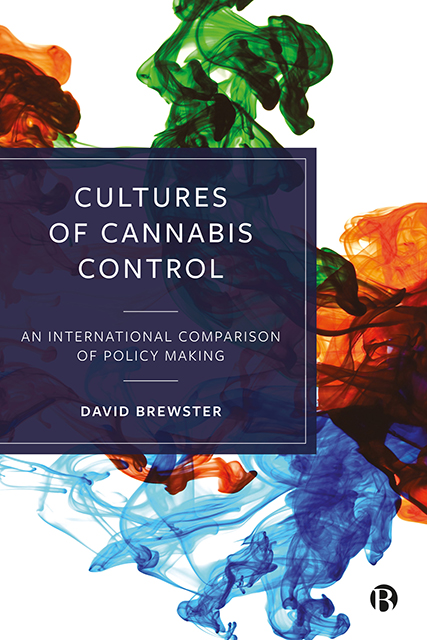Book contents
- Frontmatter
- Contents
- List of Tables
- About the Author
- Acknowledgements
- 1 Introduction
- 2 Cannabis Policy in Global Perspective
- 3 Sociopolitical Change and Cannabis Control
- 4 Problematizing Cannabis
- 5 The ‘Primeval Soup’ of Policy Proposals
- 6 The Political Environment and Windows of Opportunity
- 7 Beyond the National: Policy Negotiation, Resistance and Subversion
- 8 Cultures of Cannabis Control
- 9 Conclusions and Future Directions
- Appendix
- Notes
- References
- Index
6 - The Political Environment and Windows of Opportunity
Published online by Cambridge University Press: 16 June 2023
- Frontmatter
- Contents
- List of Tables
- About the Author
- Acknowledgements
- 1 Introduction
- 2 Cannabis Policy in Global Perspective
- 3 Sociopolitical Change and Cannabis Control
- 4 Problematizing Cannabis
- 5 The ‘Primeval Soup’ of Policy Proposals
- 6 The Political Environment and Windows of Opportunity
- 7 Beyond the National: Policy Negotiation, Resistance and Subversion
- 8 Cultures of Cannabis Control
- 9 Conclusions and Future Directions
- Appendix
- Notes
- References
- Index
Summary
Introduction
The final component of Kingdon’s multiple streams model is the political stream. Already, several themes have been discussed which have touched on innately political aspects, such as electoral insecurity and the needs of political actors to appear tough on cannabis. In this chapter, we delve further into the national-level political environment through an examination of three main components: changes in administration, the national mood and organized political forces. The first of these relates to the political colours and constellations that comprise a ruling government and how these change over time. The national mood refers to public opinion and, arguably more important, how perceptions and artificial constructions of this are used as a tool of politicking. Finally, organized political forces refers to the alignment of actors and organizations around a given policy position and their efforts to shape the outcome of policy-making processes. As with preceding chapters, an empirically based discussion of these aspects in England & Wales and the Netherlands is first presented, before complementing and contrasting these contexts with two further cases: the legalization of cannabis in Uruguay in 2013 and the unsuccessful attempt to legally regulate non-medical cannabis in New Zealand in 2020.
England & Wales: an inevitable policy reversal?
The 2009 reclassification of cannabis in England & Wales usefully illuminates the role of changes in administration, the national mood, and organized political forces in policy change, and how these aspects are conditioned in an adversarial political environment which is dominated by two large parties. Indeed, it is argued that the competition both between and within political parties that such structured relations foster has, under contemporary conditions, made cannabis policy making particularly vulnerable to penetration by populist forces and knee-jerk reactions.
Changes in administration
Owing to the nature of the UK Parliament, which tends to favour one party forming a government, individual ruling politicians, and particularly the prime minister, have the capacity to take on a more influential role in decision-making processes than could be expected in other forms of democratic governance.
- Type
- Chapter
- Information
- Cultures of Cannabis ControlAn International Comparison of Policy Making, pp. 105 - 123Publisher: Bristol University PressPrint publication year: 2022



